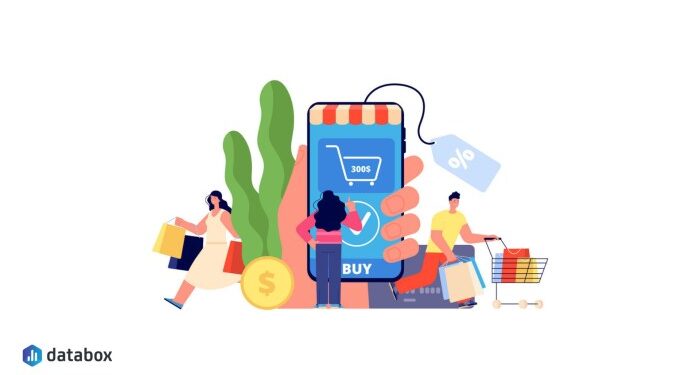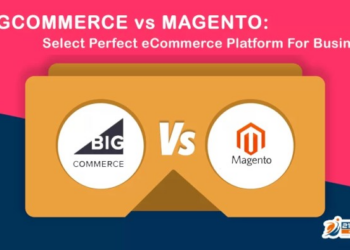"Best Ecommerce PPC Management Strategies for Shopify & Magento" introduces readers to a world of dynamic possibilities, offering insights into the realm of PPC management with a focus on Shopify and Magento. This guide delves into the intricacies of driving sales through strategic PPC campaigns, shedding light on the nuances unique to each platform.
From setting up campaigns to targeting strategies, ad copy, budgeting, and tracking, this comprehensive exploration equips readers with the tools and knowledge needed to navigate the complex landscape of ecommerce PPC management.
Introduction to Ecommerce PPC Management
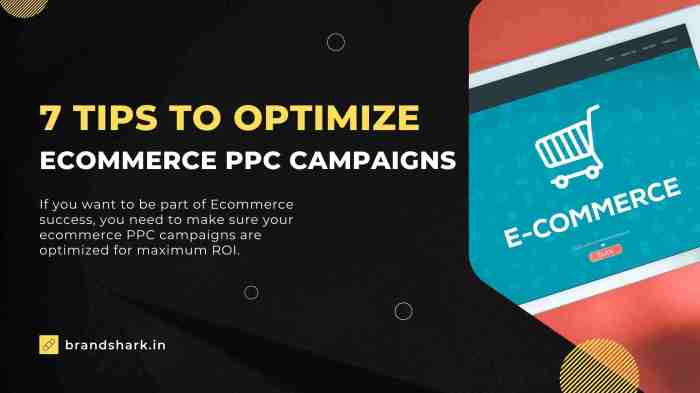
PPC management plays a crucial role in the success of ecommerce businesses, especially for platforms like Shopify and Magento. By effectively utilizing PPC strategies, businesses can drive targeted traffic to their online stores, increase brand visibility, and ultimately boost sales.
Importance of PPC Management for Shopify and Magento
PPC management is essential for Shopify and Magento platforms as it allows businesses to reach potential customers actively searching for products or services. With the right PPC campaigns, businesses can increase their online presence, attract quality leads, and generate conversions.
Overview of how PPC Strategies Drive Sales for Ecommerce Businesses
- Targeted Advertising: PPC strategies enable businesses to target specific demographics, locations, and interests, ensuring that ads reach the right audience.
- Enhanced Visibility: By bidding on relevant s, ecommerce businesses can increase visibility on search engine results pages, leading to more clicks and potential sales.
- Improved ROI: Effective PPC management can result in a higher return on investment by optimizing ad campaigns, increasing conversion rates, and reducing ad spend wastage.
Differences in PPC Management for Shopify and Magento Platforms
While the goal of PPC management is similar for Shopify and Magento platforms, there are some differences in how strategies are implemented:
| Shopify | Magento |
| Shopify offers a user-friendly interface with built-in tools for PPC management, making it easier for businesses to create and monitor ad campaigns. | Magento provides more customization options and flexibility in PPC strategies, allowing businesses to tailor campaigns to specific needs and preferences. |
| Shopify's integration with Google Ads and other advertising platforms simplifies the process of running PPC campaigns and tracking performance. | Magento's robust analytics and reporting capabilities enable businesses to gain deeper insights into PPC campaign performance and make data-driven decisions. |
Setting Up PPC Campaigns on Shopify and Magento
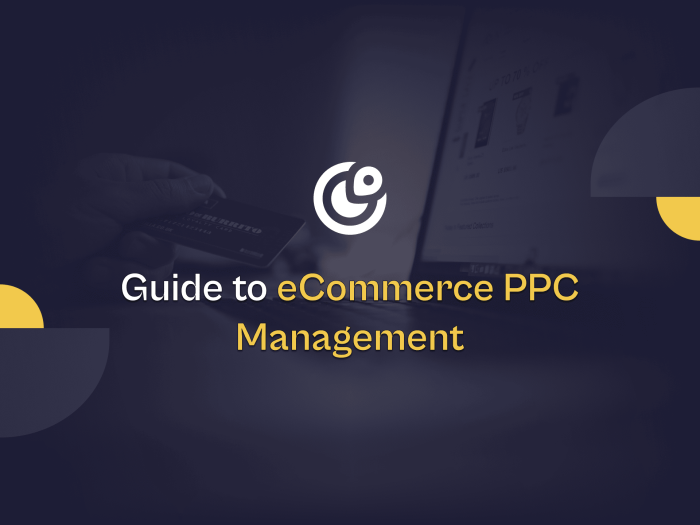
Setting up PPC campaigns on Shopify and Magento is essential for driving traffic and increasing sales on your ecommerce platform. Both Shopify and Magento offer tools and features to help you create effective PPC campaigns tailored to your business needs.
Creating Effective PPC Campaigns on Shopify
- Log in to your Shopify account and navigate to the Marketing section.
- Select 'Create Campaign' and choose the goal of your campaign, whether it's to drive traffic, generate leads, or increase sales.
- Set your budget, target audience, and schedule for the campaign.
- Create engaging ad copy and select relevant s to target your audience effectively.
- Monitor the performance of your campaign and make adjustments as needed to optimize results.
Setting Up PPC Campaigns on Magento
- Access your Magento admin panel and go to the Marketing section.
- Click on 'Ad Campaigns' and choose 'Create New Campaign'.
- Define your campaign objectives, budget, and targeting options.
- Create compelling ad creatives and set up tracking to measure the success of your campaign.
- Launch your campaign and monitor performance metrics to make informed decisions for improvements.
Tools for Managing PPC Campaigns on Shopify and Magento
- Shopify:Shopify offers built-in tools like Shopify Ads to help you create and manage PPC campaigns directly from your dashboard. You can also integrate third-party apps like Google Ads and Facebook Ads for more advanced campaign management.
- Magento:Magento provides a range of extensions and integrations for PPC campaign management, such as Google AdWords integration and Facebook Ads extension. These tools offer advanced features for tracking, targeting, and optimizing your campaigns.
Targeting Strategies for Ecommerce PPC
When it comes to Ecommerce PPC campaigns, targeting the right audience is crucial for driving conversions and maximizing ROI. By using demographics and interests effectively, you can tailor your ads to reach potential customers who are more likely to make a purchase.
Let's explore some best practices for targeting strategies in Ecommerce PPC.
Using Demographics and Interests to Target Potential Customers
- Utilize demographic data such as age, gender, location, and income to target specific segments of your audience. For example, if you sell luxury skincare products, targeting women aged 35-55 with higher incomes may yield better results.
- Consider the interests and behaviors of your target audience to create personalized ad messaging. If your target customers are interested in fitness, you can tailor your ads to highlight the health benefits of your products.
- Use remarketing strategies to target customers who have already visited your site but did not make a purchase. By showing them relevant ads based on their previous interactions with your website, you can encourage them to complete their purchase.
Targeting the right audience with personalized messaging can significantly improve the performance of your Ecommerce PPC campaigns.
Impact of Targeting Strategies on Ecommerce PPC Campaigns
- Improved Conversion Rates: By targeting the right audience with relevant ads, you are more likely to attract customers who are interested in your products, leading to higher conversion rates.
- Reduced Ad Spend: Targeting specific demographics and interests helps you avoid wasting ad spend on irrelevant audiences, allowing you to allocate your budget more efficiently.
- Increased ROI: Effective targeting strategies can result in a higher return on investment for your Ecommerce PPC campaigns, as you are reaching customers who are more likely to convert.
Ad Copy and Creatives for Ecommerce PPC
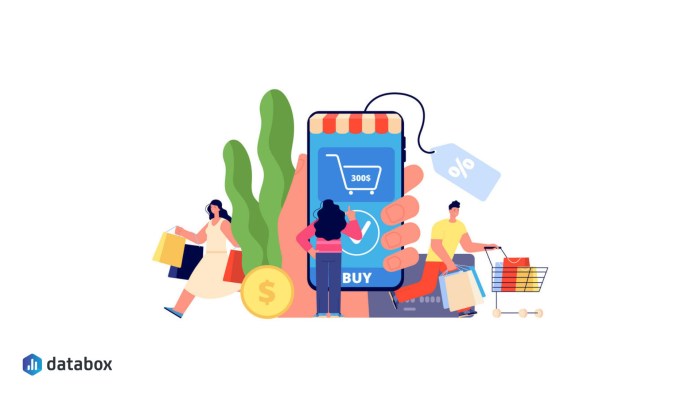
Creating compelling ad copy and visual creatives is crucial for the success of PPC campaigns on Shopify and Magento. Let's dive into some tips and examples to help you drive engagement and conversions effectively.
Tips for Creating Compelling Ad Copy
When crafting ad copy for your ecommerce PPC campaigns, it's important to be concise, clear, and compelling. Here are some tips to keep in mind:
- Highlight key selling points and unique selling propositions to grab the attention of potential customers.
- Use action-oriented language to encourage clicks, such as "Shop Now" or "Discover More".
- Incorporate relevant s to improve ad relevance and performance.
- Include a strong call-to-action to prompt users to take the desired action, whether it's making a purchase or signing up for a newsletter.
Importance of Visual Creatives
In addition to compelling ad copy, using visually appealing creatives can significantly impact engagement and conversions. Visual elements can capture the attention of users and convey information more effectively than text alone. Here's why visual creatives are important:
- Images and videos can showcase products in a more engaging way, helping potential customers visualize themselves using the product.
- Eye-catching design and high-quality visuals can help your ads stand out from the competition and drive higher click-through rates.
- Visual creatives can evoke emotions and create a connection with the audience, leading to increased brand awareness and loyalty.
Examples of Successful Ad Copy and Creatives
Here are some examples of successful ad copy and creatives used in ecommerce PPC management:
-
"Don't Miss Out! Limited Time Offer- Shop Now for 50% Off All Products!"
-
"Discover the Perfect Gift for Every Occasion- Shop Our Exclusive Collection Today!"
-
Visual creative: A high-quality image showcasing a product with a clear call-to-action overlay, such as "Buy Now" or "Learn More".
Budgeting and Bidding Strategies
Effective budgeting and bidding strategies are essential for maximizing ROI in ecommerce PPC campaigns on platforms like Shopify and Magento. By carefully setting budgets and utilizing the right bidding strategies, businesses can ensure that their ad spend is optimized for the best results.
Setting Budgets Effectively
When setting budgets for PPC campaigns on ecommerce platforms, it is crucial to consider the overall marketing goals, competition, and expected return on investment. Here are some key tips for setting budgets effectively:
- Start by calculating your maximum cost per acquisition (CPA) and desired return on ad spend (ROAS) to determine a baseline budget.
- Allocate budgets based on the performance of individual products or categories to ensure that top-selling items receive appropriate ad spend.
- Regularly monitor and adjust budgets based on the campaign performance data to reallocate funds to high-performing ads.
Different Bidding Strategies
Bidding strategies play a crucial role in the success of ecommerce PPC campaigns on Shopify and Magento. Here are some bidding strategies that work best for these platforms:
- Automated Bidding: Utilize automated bidding features provided by the platforms to optimize bids based on performance data and objectives.
- Manual Bidding: Take control of your bids to adjust them based on specific performance or campaign goals.
- Enhanced CPC: Use enhanced cost-per-click (CPC) bidding to automatically adjust bids for clicks that are more likely to lead to conversions.
Optimizing Budgets and Bids
To maximize ROI in ecommerce PPC campaigns on Shopify and Magento, it is essential to continuously optimize budgets and bids. Here are some insights on optimizing budgets and bids:
- Regularly analyze campaign performance data to identify underperforming s or products and adjust budgets and bids accordingly.
- Implement A/B testing to compare different bidding strategies and allocate budgets to the most effective campaigns.
- Utilize remarketing strategies to target customers who have previously engaged with your ads, optimizing budgets for higher conversion rates.
Tracking and Analytics in Ecommerce PPC
Tracking and analyzing the performance of your PPC campaigns is crucial to ensure that you are maximizing your ROI and reaching your target audience effectively. By monitoring key metrics and using the right tools, you can make data-driven decisions to optimize your campaigns for better results.
Key Metrics to Monitor
- Click-Through Rate (CTR): This metric shows the percentage of people who clicked on your ad after seeing it. A high CTR indicates that your ad is relevant to your audience.
- Conversion Rate: The conversion rate measures the percentage of users who completed a desired action, such as making a purchase, after clicking on your ad.
- Cost Per Acquisition (CPA): CPA calculates how much you are spending to acquire a customer through your PPC campaign. It helps in determining the cost-effectiveness of your campaigns.
- Return on Ad Spend (ROAS): ROAS measures the revenue generated for every dollar spent on advertising. It helps in assessing the profitability of your PPC campaigns.
Tools and Methods for Tracking Conversions
Google Analytics
Google Analytics is a powerful tool that allows you to track conversions from your PPC campaigns. By setting up conversion tracking in Google Analytics, you can attribute conversions to specific s, ads, or campaigns.
UTM Parameters
UTM parameters are tags that you add to your URLs to track the effectiveness of your marketing campaigns. By using UTM parameters in your PPC ads, you can easily track conversions and analyze the performance of each campaign.
Conversion Tracking Pixels
Conversion tracking pixels are snippets of code that you place on your website to track user actions, such as purchases or sign-ups. By implementing conversion tracking pixels on your Shopify or Magento store, you can accurately measure the success of your PPC campaigns.
Remarketing and Retargeting in Ecommerce PPC
Remarketing and retargeting play a crucial role in ecommerce PPC strategies by allowing businesses to reconnect with potential customers who have previously interacted with their website or products. These tactics involve showing targeted ads to users who have already visited the site, increasing the chances of conversion.
Implementing Remarketing Campaigns on Shopify and Magento
Implementing remarketing campaigns on Shopify and Magento can be highly effective in driving sales and increasing brand awareness. Here are some best practices to consider:
- Utilize dynamic ads to show specific products that users have viewed or added to their cart, increasing relevancy and engagement.
- Segment your audience based on their behavior on the site, such as cart abandoners or past purchasers, to tailor your messaging accordingly.
- Set frequency caps to avoid bombarding users with the same ad repeatedly, ensuring a positive user experience.
- Experiment with different ad formats and creatives to keep the campaigns fresh and engaging for the audience.
Successful Remarketing Tactics in Ecommerce PPC Management
Successful remarketing tactics in ecommerce PPC management can significantly impact conversion rates and ROI. Here are some examples of effective strategies:
- Offer exclusive discounts or promotions to entice users to complete their purchase, leveraging their previous interest in the products.
- Create personalized ads based on user behavior, such as showcasing complementary products to what they have previously viewed or purchased.
- Use ad extensions to provide additional information or incentives, such as free shipping or limited-time offers, to drive urgency and conversions.
- Implement cross-device remarketing to reach users on different devices and platforms, ensuring a seamless and consistent experience throughout their customer journey.
Closing Summary
As we conclude this exploration of “Best Ecommerce PPC Management Strategies for Shopify & Magento,” it becomes evident that success in the realm of ecommerce PPC hinges on a delicate balance of strategy and execution. By implementing the insights and tactics highlighted in this guide, businesses can position themselves for growth and profitability in the competitive online marketplace.
General Inquiries
How important is PPC management for Shopify and Magento?
PPC management plays a crucial role in driving traffic and conversions for ecommerce businesses on Shopify and Magento, helping them reach their target audience effectively.
What are some key differences in PPC management between Shopify and Magento?
While the core principles of PPC management apply to both platforms, the tools and specific strategies may vary based on the unique features of Shopify and Magento.
How can targeting strategies impact the success of ecommerce PPC campaigns?
Effective targeting strategies ensure that PPC campaigns reach the right audience, increasing the likelihood of conversions and maximizing ROI for ecommerce businesses.
Why is tracking and analytics important in ecommerce PPC?
Tracking campaign performance and analyzing key metrics is essential to understanding the effectiveness of PPC efforts, allowing businesses to make informed decisions for optimization.
What role does remarketing play in ecommerce PPC strategies?
Remarketing helps businesses reconnect with previous visitors and customers, improving conversion rates and enhancing overall campaign performance in ecommerce PPC.

